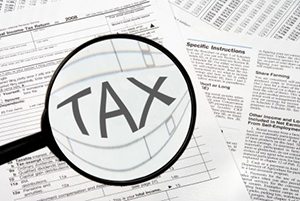Stateless income is the latest tax target for governments trying to shore up massive budget deficits.
Stateless income is the billions of pounds piled in cash mountains around the world by multinational companies.
The attack on these cash piles threatens to undermine the profitability and attraction for investors of many worldwide brands.
Under the spotlight are global firms like Apple, Google, Starbucks and Amazon.
Most are American firms with an international network of subsidiaries in countries where corporate taxes are much less than those paid in the US, Europe or states where the bulk of their sales take place.
Cheating on taxes
Politicians in America and Britain have accused these firms of cheating on taxes – and the firms respond they are merely playing the rules created by the governments who are accusing them of wrongdoing.
At the heart of the problem is a recent change in attitude towards tax enforcement by governments.
Until 2010, when the US introduced the Foreign Account Tax Compliance Act (FATCA), each government’s tax authority enforced their own laws and pretty much kept their activities within their borders.
However, FATCA changed the landscape for individuals with offshore accounts and investments by setting up a framework for governments to exchange tax information about individuals.
Now, under the auspices of the Organisation of Economic Co-Operation and Development (OECD), the same governments that are exchanging personal financial information about taxpayers are ready to do combat with multinational businesses.
The OECD has told the G20 group of developed nations that the current fractured tax collection strategy does not work for stateless income.
Manipulating loopholes
The OECD alleges these companies are robbing governments of billions of pounds that would allow them to balance their budget deficits much quicker and without individuals and onshore businesses bearing the brunt of austerity measures.
A report from the US Senate calculated Apple avoided $9 billion in US taxes alone in 2012 by manipulating loopholes in the international tax system.
The report concludes US companies have $1.5 trillion in stateless income floating around the world, and now governments want a slice of the cash.
The British government is calling for multinationals to pay tax on profits where their sales take place and condemns complicated arrangements that shuffle money around the banking system to safe havens.
Changing the corporate tax system is a big ask for governments and companies. At risk are jobs and economic growth, while shareholders face costly legal battles, claims on profits and smaller returns.
